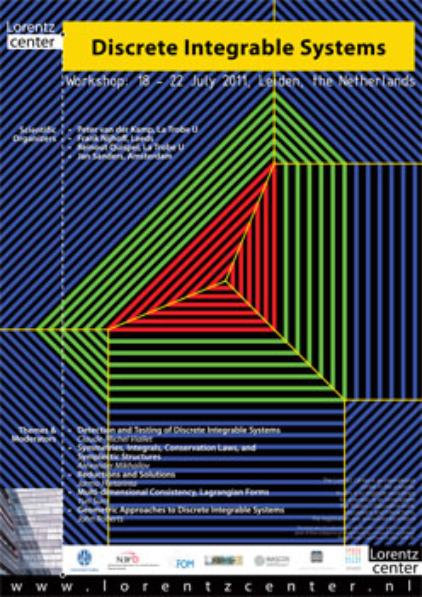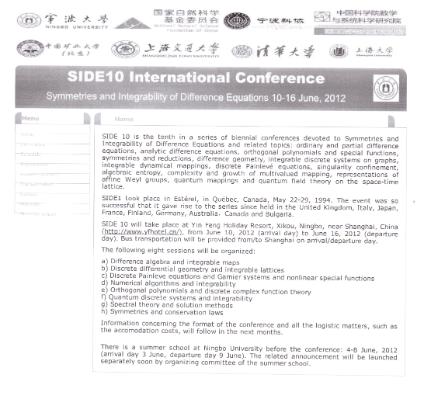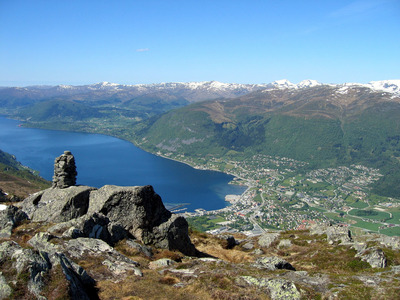Past Conferences
 5. Geometric approaches to Discrete Integrable Systems Painlevé equations, and to the QRT maps. Can this be extended to higher dimensional mappings, and to lattices?
The workshop aims to initiate new research and research collaborations, in the field of Discrete Integrable Systems, and in closely related areas. | Discrete Integrable Systemsfrom 18 Jul 2011 through 22 Jul 2011
| |||||||
Forthcoming Conferences
 | SIDE 10 is the tenth in a series of biennial conferences devoted to Symmetries and Integrability of Difference Equations and related topics: ordinary and partial difference equations, analytic difference equations, orthogonal polynomials and special functions, symmetries and reductions, difference geometry, integrable discrete systems on graphs, integrable dynamical mappings, discrete Painlevé equations, singularity confinement, algebraic entropy, complexity and growth of multivalued mapping, representations of affine Weyl groups, quantum mappings and quantum field theory on the space-time lattice. The following eight sessions will be organized: a) Difference algebra and integrable maps Information concerning the format of the conference and all the logistic matters, such as the accomodation costs, will follow in the next months. There is a summer school at Ningbo University before the conference: 4-8 June, 2012 (arrival day 3 June, departure day 9 June). The related announcement will be launched separately soon by organizing committee of the summer school. |
 | Location
OrganizersThe Editors of the Journal of Nonlinear MathematicalPhysics DescriptionThe conference is a celebration of the twentieth anniversary of the Journal of Nonlinear Mathematical Physics (JNMP), which is published jointly by World Scientific and Atlantis Press. It aims to bring together experts and young scientists in the area of Mathematical Physics that concern Nonlinear Problems in Physics and Mathematics. The main topic of the conference is centered around the scope of JNMP: continuous and discrete integrable systems including ultradiscrete systems, nonlinear differential- and difference equations, applications of Lie transformation groups and Lie algebras, nonlocal transformations and symmetries, differential-geometric aspects of integrable systems, classical and quantum groups, super geometry and super integrable systems. |
